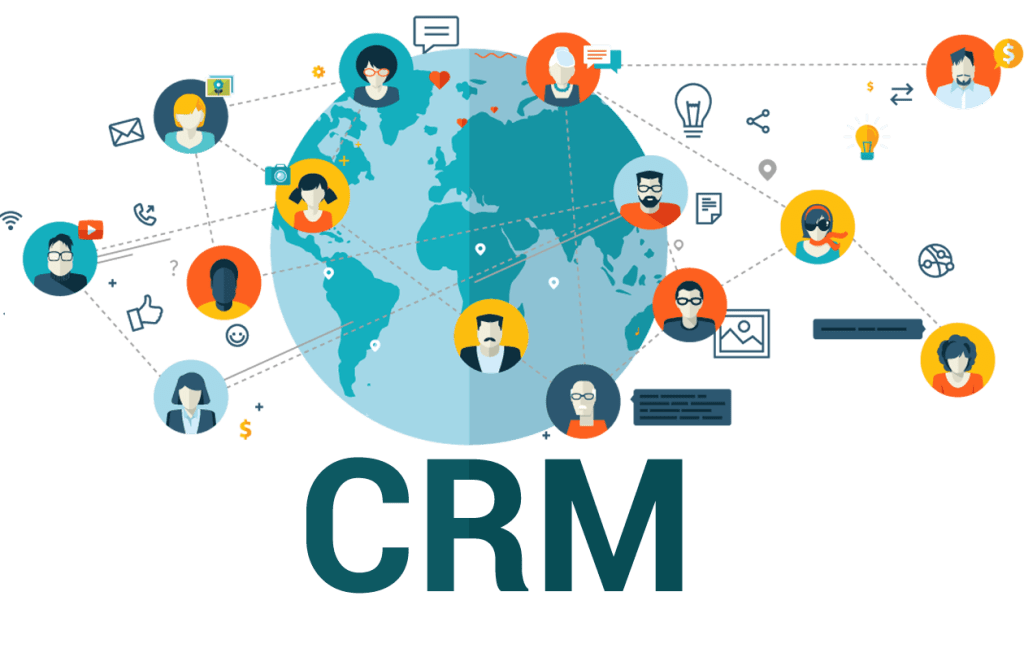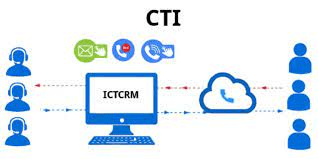In today’s intensely competitive business landscape, it has become absolutely essential for companies to provide personalized customer experiences as a means of setting themselves apart. This is precisely where the importance of Dynamic CRM (Customer Relationship Management) systems becomes evident, as they provide businesses with the tools to tailor their customer interactions and forge long-lasting relationships. Through the fusion of data, technology, and processes, Dynamic CRM presents a comprehensive solution that empowers companies to elevate their customer engagements, drive sales, and ultimately enhance overall customer satisfaction.
Understanding Dynamic CRM:
Dynamic CRM represents a technology-centric approach to efficiently oversee customer relationships. Through the aggregation of data from various touchpoints such as sales, marketing, and customer service, it facilitates the creation of a comprehensive customer profile. This all-encompassing view equips businesses with the understanding of customer preferences, needs, and behaviors, enabling tailored interactions across the entire customer experience.
Serving as a centralized hub for customer information, Dynamic CRM systems securely house vital data, including contact information, purchase histories, communication preferences, and interactions across multiple channels. By consolidating this data, enterprises gain invaluable insights into individual customers, their preferences, and their overall journey with the company.

Personalization in the Digital Age:
The digital era has ushered in a shift in customer expectations. Modern customers now seek personalized experiences that align with their distinct preferences and interests. They anticipate that businesses will not only comprehend their requirements but also predict their desires, offering customized suggestions and solutions.
Dynamic CRM equips businesses with the means and functionalities to proficiently collect, assess, and make use of customer data. By grasping the unique preferences of each customer, companies can execute precisely targeted marketing initiatives, provide personalized product suggestions, and deliver tailor-made customer assistance. This approach yields heightened customer loyalty and contentment, meeting the demands of today’s discerning clientele.
Harnessing Data for Personalization:
Dynamic CRM’s centralized and analytical capabilities play a pivotal role in managing substantial volumes of customer data. By consolidating data from various origins, including website interactions, social media, and purchase records, companies gain priceless insights into customer actions and inclinations. These insights establish the groundwork for categorizing customers, crafting personalized marketing communications, and designing customized product choices.
Leveraging advanced analytics and reporting tools, Dynamic CRM empowers enterprises to uncover patterns, trends, and associations hidden within their customer data. Through meticulous examination, companies can pinpoint unique customer segments, anticipate future behaviors, and devise targeted strategies tailored to address the specific requirements of individual customers.
Streamlining Sales and Marketing Efforts:
Dynamic CRM systems offer robust sales and marketing automation features that streamline processes and increase efficiency. By automating repetitive tasks, such as lead qualification, contact management, and campaign execution, businesses can focus on building meaningful relationships with customers.
Dynamic CRM also enables sales teams to track and manage customer interactions, ensuring timely follow-ups and personalized sales approaches. With access to customer data, sales representatives can understand customer preferences and pain points, allowing them to tailor their sales pitches and offer relevant solutions. This personalized approach enhances the customer experience and increases the chances of closing deals.
Moreover, marketing teams can leverage Dynamic CRM to create targeted campaigns based on customer segments, preferences, and past behaviors. By delivering personalized messages through various channels, such as email, social media, and SMS, businesses can capture the attention of their customers and drive higher engagement.
Enhancing Customer Service and Support:
Ensuring exceptional customer service is paramount for preserving customer satisfaction and loyalty. Dynamic CRM systems equip businesses with the necessary tools to effectively handle customer inquiries, monitor support requests, and deliver personalized support experiences.
Through the integration of customer service data within the CRM system, businesses gain access to a comprehensive record of customer interactions. This invaluable resource enables customer service representatives to grasp the context of each customer query, facilitating efficient and tailored support. For example, they can promptly identify whether a customer has recently made a purchase, encountered issues, or expressed specific preferences. Equipped with this knowledge, representatives can address customer concerns more effectively, resulting in quicker resolutions and happier customers.
Dynamic CRM also streamlines the implementation of self-service options, such as online knowledge bases, chatbots, and community forums. These resources empower customers to independently discover answers to their queries, further elevating the overall customer experience.

Leveraging AI and Machine Learning:
Artificial Intelligence (AI) and Machine Learning (ML) technologies play a significant role in enhancing the capabilities of Dynamic CRM systems. These technologies enable businesses to automate tasks, predict customer behavior, and provide personalized recommendations.
AI-powered chatbots, for instance, can deliver instant responses and personalized assistance to customer inquiries. By analyzing the customer’s query and leveraging historical data, chatbots can provide relevant information and solutions, reducing the need for human intervention and improving response times.
Furthermore, ML algorithms can analyze customer data to predict future behavior, identify upsell and cross-sell opportunities, and recommend personalized offers. By understanding each customer’s preferences, ML algorithms can generate targeted product recommendations, enhancing the customer’s shopping experience and driving sales.
Implementing Dynamic CRM Successfully:
Implementing a Dynamic CRM system requires careful planning and execution. It involves defining business objectives, selecting the right technology platform, integrating with existing systems, and training employees. A successful implementation requires collaboration between different departments, alignment with business processes, and ongoing monitoring and optimization.
It is crucial to define clear goals for implementing Dynamic CRM. These goals could include improving customer satisfaction, increasing sales revenue, reducing customer churn, or enhancing marketing campaign effectiveness. By aligning the CRM implementation with these goals, businesses can focus their efforts and measure the success of their initiatives accurately.
Integration with existing systems, such as ERP (Enterprise Resource Planning) or marketing automation tools, is essential for maximizing the value of a Dynamic CRM system. Seamless data flow between different systems ensures the availability of accurate and up-to-date customer information.
Employee training is another critical aspect of successful CRM implementation. Training programs should educate employees on how to use the CRM system effectively, interpret customer data, and leverage the available features to enhance the customer experience. By empowering employees with the necessary skills, businesses can ensure a smooth adoption of the CRM system and drive its maximum potential.
Real-World Success Stories:
Throughout various industries, businesses have successfully leveraged Dynamic CRM to deliver personalized customer experiences and achieve significant results. Case studies and success stories provide valuable insights into how companies have utilized Dynamic CRM to drive revenue growth, improve customer retention, and gain a competitive edge.
For example, an e-commerce company implemented a Dynamic CRM system and utilized customer data to create personalized email marketing campaigns. By segmenting their customers based on purchase history, preferences, and browsing behavior, they achieved a 20% increase in email engagement and a 15% boost in overall sales.
In another case, a telecom company implemented Dynamic CRM to streamline their customer service operations. By integrating customer data and support ticketing into a centralized system, they reduced average response times by 30% and improved customer satisfaction scores by 25%.
These success stories highlight the immense potential of Dynamic CRM in transforming customer experiences and driving business growth.
Conclusion:
Dynamic CRM stands as a formidable asset in the arsenal of businesses aiming to provide tailored customer experiences in the digital age. Through the strategic utilization of data, process optimization, and the incorporation of AI technologies, companies can nurture stronger customer bonds, boost sales, and elevate overall operational performance. As customer expectations continue to transform, the investment in Dynamic CRM becomes increasingly pivotal for enterprises striving for sustainable growth and enduring success.
The adoption of a holistic Dynamic CRM strategy enables businesses to secure a competitive edge, foster customer loyalty, and unlock fresh avenues for expansion. With its capacity to centralize customer data, streamline sales and marketing endeavors, enhance customer service, and harness the power of AI, Dynamic CRM emerges as a valuable asset for companies seeking to deliver personalized customer experiences and flourish in the dynamic terrain of today’s business world.
Leveraging Open Source in ICT
